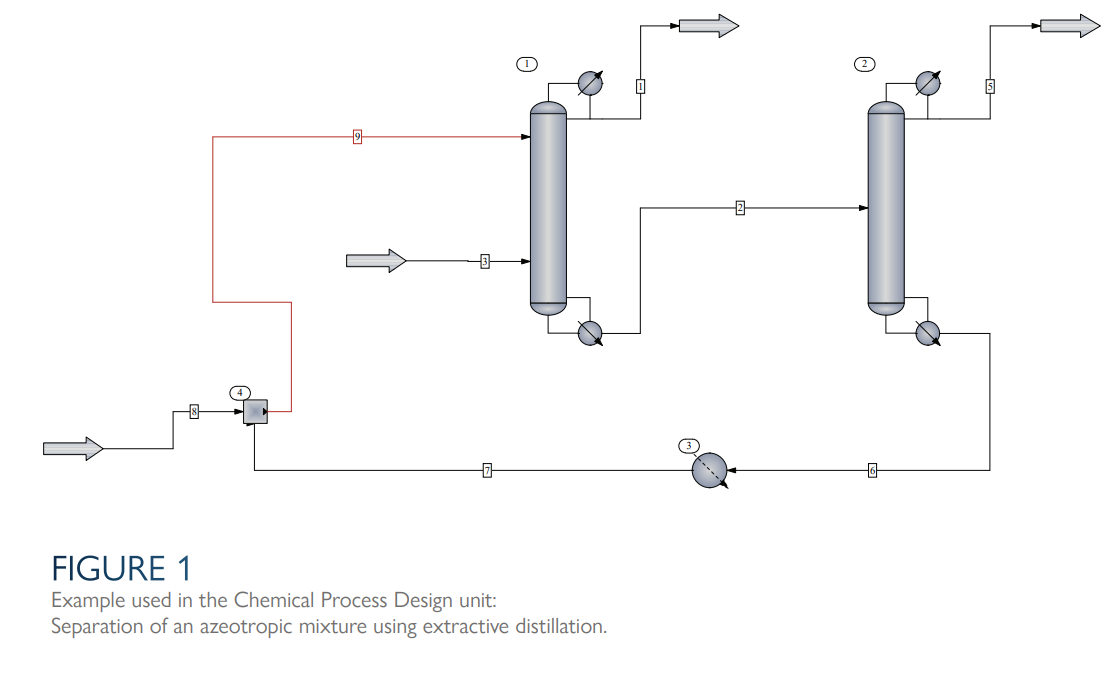THEORY TO PRACTICE
Incorporating CHEMCAD into undergraduate courses has been a game-changer for both students and educators at Miami University. The complex equations and theories taught in chemical engineering can be challenging, often leaving students feeling overwhelmed and uncertain about their ability to succeed.
When Andrew Paluch of Miami University began integrating CHEMCAD into his curriculum, he noticed a significant improvement in student confidence and engagement with the material. With CHEMCAD, students could immediately
see the impact of their decisions in a simulated environment, enhancing their understanding of fundamental principles.
CHALLENGES AND SOLUTIONS
Incorporating CHEMCAD into coursework not only enhances students’ understanding of chemical engineering concepts but also equips them with essential process simulation skills for their future careers. In the professional world, chemical engineers rely heavily on advanced computational tools like CHEMCAD to design and optimize processes. By introducing students
to this software during their undergraduate studies, universities can better prepare them for the demands of real-world engineering careers.
COURSES USING CHEMCAD
Chemical Engineering Thermodynamics: The traditional study of Gibbs free energy models or
equations of state, especially for mixtures, typically involves reading theoretical concepts from textbooks and referencing
VLE handbooks. With CHEMCAD, students can interact with these models firsthand, experiencing the impact of
model selection on the design of tangible components in a physical process.
Mass Transfer and Unit Operations: CHEMCAD allows students to test their conceptual understanding of the fundamentals behind separation processes and unit operations. By setting up simulations and analyzing the effects, students gain hands-on experience with real-world design challenges that would not typically be solved by hand. This practical approach builds their
confidence and prepares them for engineering applications beyond the classroom.
Chemical Process Design: In this capstone course for seniors, the benefits of CHEMCAD are unmistakable. Students work in teams on design projects that require the use of a process simulator. With CHEMCAD, they can confidently explain various unit operations and discuss process design and optimization.






